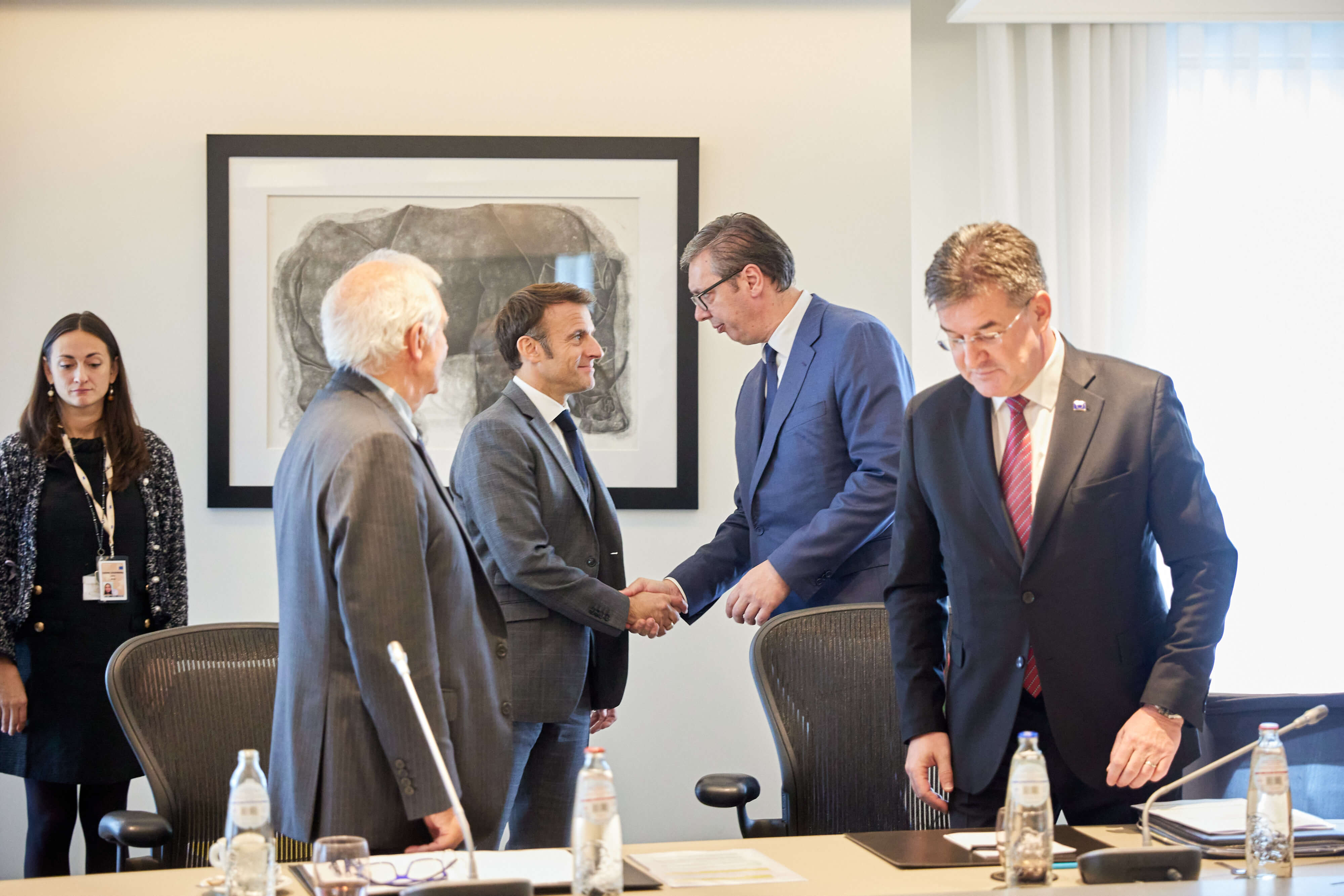After a year of severe trauma and instability, the ruling bloc of Serbian President Aleksandar Vucic stabilised its prior convincing majority in early elections last Sunday.
Vucic's bloc, dominated by his Serbian Progressive Party (SNS), will be able to form a centre-right government independently and continue a policy in which the normalisation of relations with Kosovo, which the EU and the US demand, will continue to be the principal issue.
Since Vucic's coming to power in 2012, Serbia has had a series of early parliamentary elections. The last elections were the fifth in a row. Aleksandar Vucic consolidated his legitimacy as the undisputed political leader and the dominance of his coalition in each of these elections.
His opponents did not find a way to match him, so the largest group of liberal and green organisations (Serbia Against Violence) won only about 24% of the votes.
Following 2 horrifying incidents of mass murder last May - one at an elementary school and the other in a village outside of Belgrade - where 16 youths and children were killed - public rallies took place in Belgrade for months.
Absence of an authentic alternative
Their mobilisation of voters around the fight against violence did not bring results, for which they blamed Vucic's controlling the most influential media and alleged fraud in the election process.
Their only chance is to seize control of Belgrade, the nation's capital, where the election results are almost evenly distributed. As a result, there is a chance of repeating the elections because none of the rival parties has a sufficient majority to establish an administration at the heart of the country's economy.
A diverse opposition hoped that by winning a significant government segment in the capital city, they would repeat the recipe from Budapest and Istanbul a few years ago
A diverse opposition (from prominent liberals and greens to the ultra-right) hoped that by winning a significant government segment in the capital city, they would repeat the recipe from Budapest and Istanbul a few years ago.
The opposition victories in the biggest cities of Hungary and Turkey opened expectations for the gradual overthrow of the central government of the illiberal leaders Viktor Orbán and Recep Tayyip Erdoğan.
The Hungarian and Turkish strategies have not brought results so far, and there is every chance the followers in Serbia will have to wait.
International observers of the elections in Serbia, from the OSCE, the European Parliament and the Council of Europe, registered "harsh rhetoric, bias in the media and misuse of public resources", but gave a positive assessment that "fundamental freedoms were generally respected in the campaign”.
Negotiations with Kosovo
Even though he resigned from the position of president of the ruling party earlier this year, Serbian President Vucic led his party's campaign and is most responsible for its success. His approval ratings of more than 60% far exceed his party's popularity.
He is again on his way to form a government independently, which will be under his dominant political influence.
The EU and the US wish to finish the process of negotiations with the government of Kosovo regarding mutual normalisation of relations will mark the following period he enters with the new cabinet.
Vucic ended the elections successfully using strong patriotic rhetoric regarding Kosovo, stressing that Serbia will not recognise it as an independent state and will not accept Kosovo's UN membership
These negotiations have been ongoing for more than 10 years, with the mediation of the EU, but without significant results. The administration of US President Joe Biden, which has been pressuring both sides in the negotiations to finalise complicated agreements before the end of Biden's mandate, brought about this acceleration.
Vucic also ended these elections successfully using strong patriotic rhetoric regarding Kosovo, stressing that Serbia will not recognise it as an independent state and will not accept Kosovo's UN membership, which are the demands of the West.
His electorate is conservative and nationalist, so messages like these from Vucic bring sympathy and votes. However, at the same time, Vucic emphasised that the growth of the economy and employment in the last few years will not be sustainable without an imminent compromise regarding Kosovo.
Western support is conditional on moves towards the region
That is why his new government, with its newly confirmed legitimacy, will probably move towards an agreement with Pristina more boldly than before, responding to the demands of the EU and the US.
In this, his job was made easy by the confused opposition policy regarding Kosovo, which, unlike Vucic, opposes the European model on the table but does not offer an alternative plan for Serbia.
 Vucic's coalition is still an acceptable partner for the EU and the US
Vucic's coalition is still an acceptable partner for the EU and the US
This is comparable to Vucic's ambivalent policy regarding Russia and the EU. His administration has drawn criticism from both Brussels and Washington since it is committed to Serbia's EU membership as a long-term candidate but does not want to impose sanctions on Russia.
His political opponents practically represent the same foreign policy position. Because of this, they did not present themselves to voters as an authentic alternative. In addition, the extreme right-wing opposition bloc members demand a more decisive shift of Serbia towards Russia and even a state and economic union, with the abandonment of EU membership.
In such an arrangement, Vucic's coalition is still an acceptable partner for the EU and the US, regardless of criticism of its strong influence on institutions, the media, and the principal economic trends.
However, this support will depend solely on Vucic's readiness to reach an agreement with Kosovo as soon as possible, followed by Bosnia and Herzegovina, given the significant influence of Belgrade on the Serbian leaders there, who obstruct the functioning of state institutions.